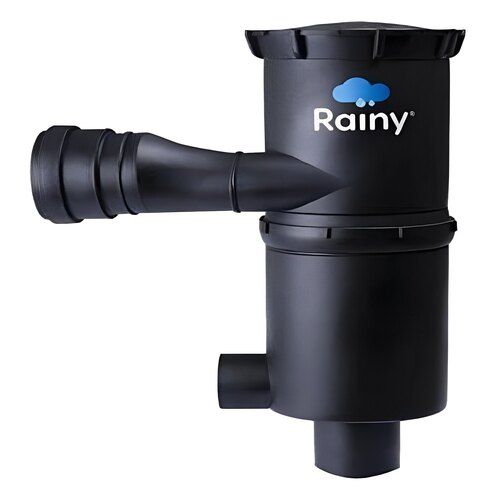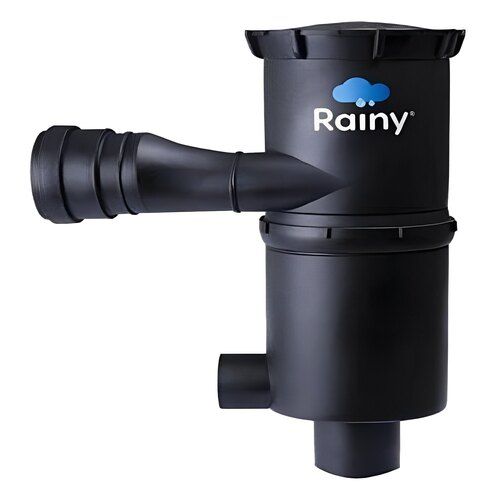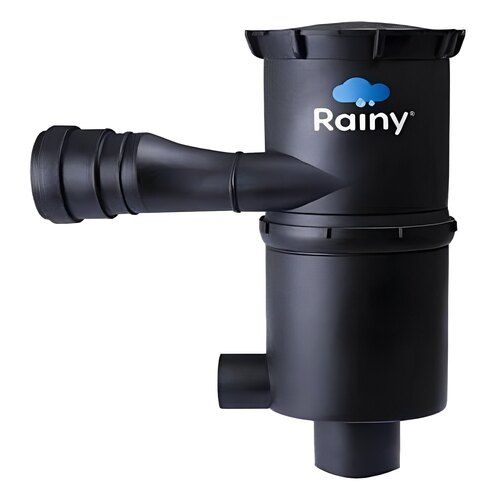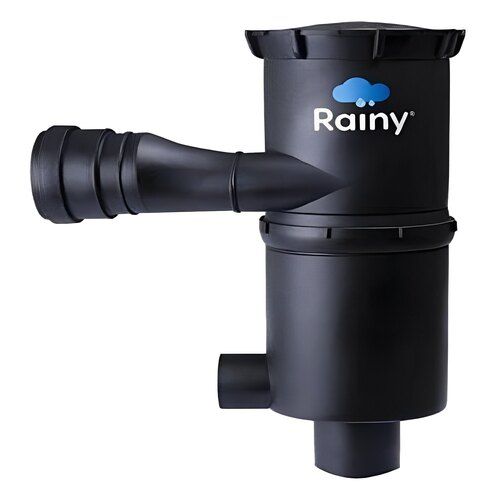Rainy Rainwater Harvesting Filters FL 300
Price 14046 INR/ Piece
Rainy Rainwater Harvesting Filters FL 300 Specification
- Product Type
- Rainwater Harvesting Filters
- General Use
- Rainwater collection and filtration
- Material
- Stainless Steel
- Type
- FL 300
- Capacity
- 30000 liters/hour
- Weight (kg)
- Approx. 12 kg
- Computerized
- No
- Automatic
- Semi-automatic
- Ozone Generator
- No
- UV Sterilizer
- No
- Control System
- Manual valve mechanism
- Filter Bag No.
- 3 levels of filtration
- Filter Area
- Large mesh area with multiple filtration stages
- Flow Rate
- Up to 30,000 LPH (liters per hour)
- Voltage
- Not Applicable / Manual Operation
- Dimension (L*W*H)
- 720 mm x 420 mm x 420 mm
- Feature
- High durability, Rust-proof, Low maintenance, Self-cleaning
- Color
- Black
Rainy Rainwater Harvesting Filters FL 300 Trade Information
- Minimum Order Quantity
- 5 Units
- Sample Available
- Yes
- Main Domestic Market
- All India
About Rainy Rainwater Harvesting Filters FL 300
Open-ended & self cleaning.
No moving parts, no wear & tear.
Prevents water logging in low-lying areas.
Auto flush out of dirt & debris.
Retrofit: any local plumber can fix.
Cost effective & affordable to the common man.
No external power.
Works by gravity headless than -2 feet.
Working principle: Cohesion and Centrifugal Force.
Suitability of Area - Upto 350 sq. mtr.
Inlet - 110mm
Outlet - 110mm
Advanced Three-Stage Filtration
The FL 300 employs a multi-level filtration system, with primary, secondary, and tertiary stages utilizing high-quality SS304 fine mesh. This configuration captures both coarse and fine particulates, ensuring filtered rainwater is suitable for diverse applications. The large mesh area supports optimal flow and efficient filtration even in heavy rain.
Heavy-Duty, Low-Maintenance Design
Engineered from durable, corrosion-resistant stainless steel, this filter is built to withstand harsh weather and frequent use. The vertical cylindrical design simplifies the installation process for downpipe applications, and the self-cleaning mechanism, paired with easy-access mesh, ensures routine maintenance is infrequent and hassle-free.
Efficient and Versatile Operation
Supporting a flow rate of up to 30,000 liters per hour, the FL 300 is well-suited for rainwater harvesting in both small and large-scale environments. Its automated bypass feature ensures uninterrupted operation during heavy rainfall, while the manual valve allows users control over the filtration process, maximizing flexibility and reliability.
FAQs of Rainy Rainwater Harvesting Filters FL 300:
Q: How does the FL 300 rainwater filter operate for rainwater collection?
A: The FL 300 uses a vertical cylindrical design mounted externally on a downpipe. Rainwater enters through the 110 mm inlet and passes through three filtration stagesprimary, secondary, and tertiaryusing SS304 fine mesh to remove debris and impurities before collection.Q: What maintenance is required for the FL 300 rainwater harvesting filter?
A: Maintenance is minimal; periodic cleaning of the stainless steel mesh is recommended to ensure optimal performance. Its self-cleaning feature and rust-proof design further reduce upkeep frequency.Q: When should the filters mesh be cleaned?
A: It is advisable to clean the filter mesh periodically, depending on local rainfall and debris levels. Generally, checking and cleaning after heavy rain or at least once every few months is sufficient for most environments.Q: Where should the FL 300 filter be installed?
A: The filter is designed for outdoor use and should be mounted directly onto the rainwater downpipe. Its robust, weather-resistant build makes it suitable for residential, commercial, and institutional setups.Q: What benefits does the auto-bypass feature provide during rainfall?
A: The auto-bypass activates during overflow conditions, allowing excess rainwater to be safely diverted. This prevents clogging, ensures uninterrupted filtration, and protects the system during heavy rain events.Q: How does the FL 300 handle high flow rates of rainwater?
A: With a capacity of up to 30,000 liters per hour and a large mesh surface area, the FL 300 efficiently filters large volumes of rainwater while maintaining consistent performance and minimal pressure loss.Q: What are the primary advantages of using this rainwater filter model?
A: The main benefits include high filtration efficiency, low maintenance, chemical and corrosion resistance, durability, easy installation, and adaptability across various building types. Its manual control system provides users with operational flexibility.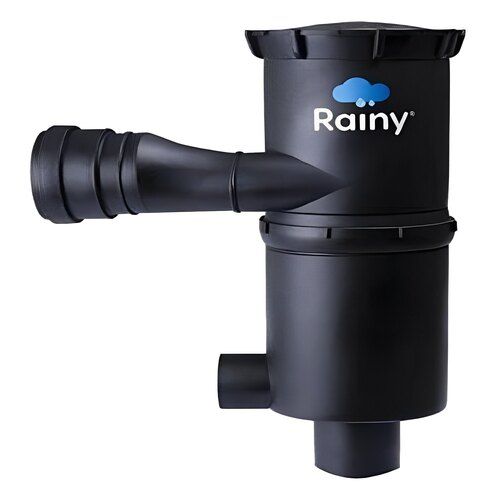

Price:
- 50
- 100
- 200
- 250
- 500
- 1000+
More Products in Rainy Filters Category
Rainy Rainwater Harvesting Filters FL 150
Price 7816 INR / Piece
Minimum Order Quantity : 5 Units
Automatic : Yes
Computerized : No
Color : Black
General Use : Rainwater Filtration and Harvesting
Rainy Rainwater Harvesting Filters FL 250
Price 9904 INR / Piece
Minimum Order Quantity : 5 Units
Automatic : Yes
Computerized : No
Color : Black
General Use : Rainwater Filtration for Buildings
Rainy Rainwater Harvesting Filters FL 200
Price 8825 INR / Piece
Minimum Order Quantity : 5 Units
Automatic : Yes
Computerized : No
Color : Black
General Use : Rainwater Harvesting and Filtration
Rainy Rainwater Harvesting Filters FL 500
Price 19089 INR / Piece
Minimum Order Quantity : 5 Units
Automatic : Other, SemiAutomatic
Computerized : No
Color : Black
General Use : Rainwater Filtration for Underground/Overhead Tanks

 Send Inquiry
Send Inquiry Send Inquiry
Send Inquiry
